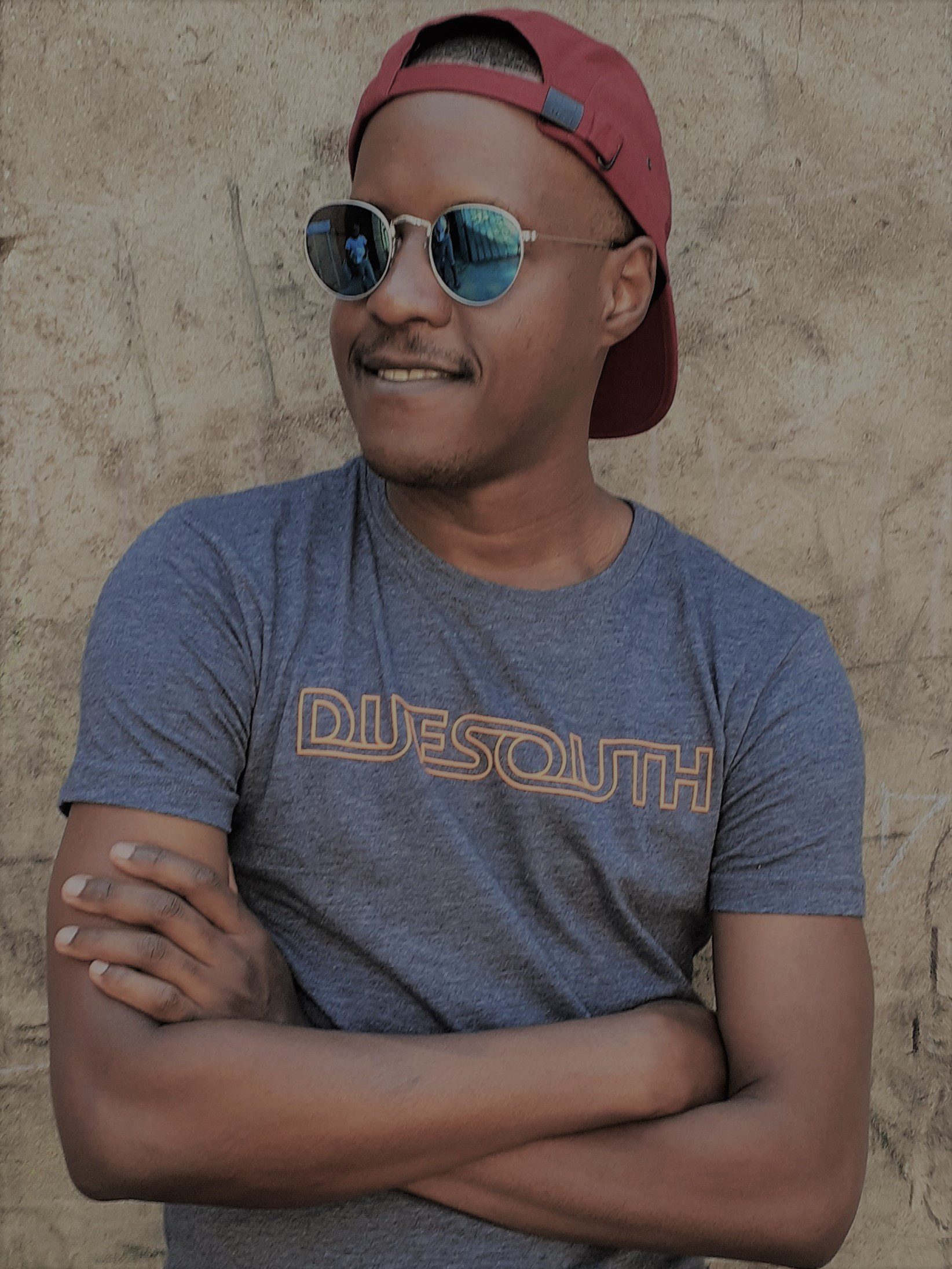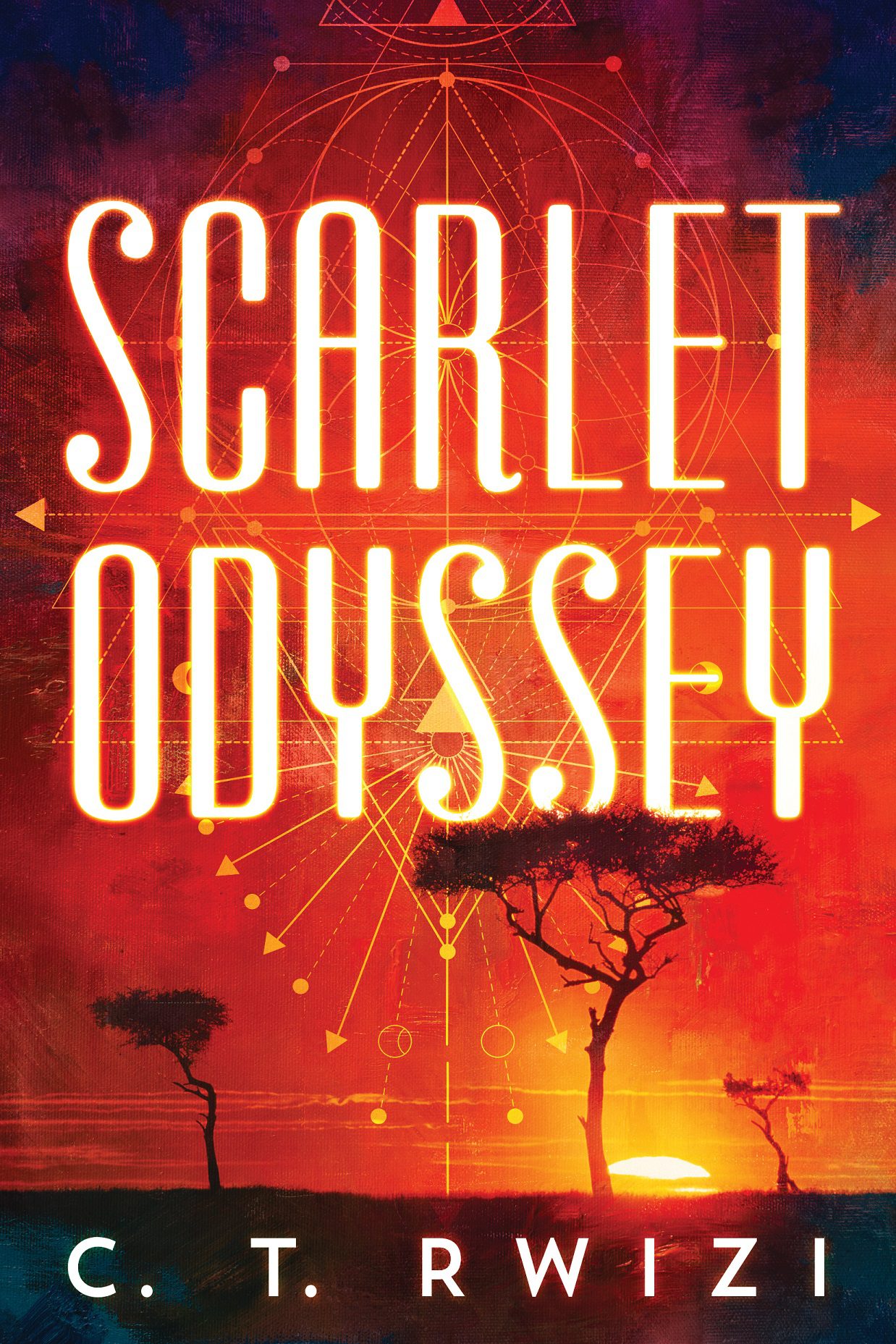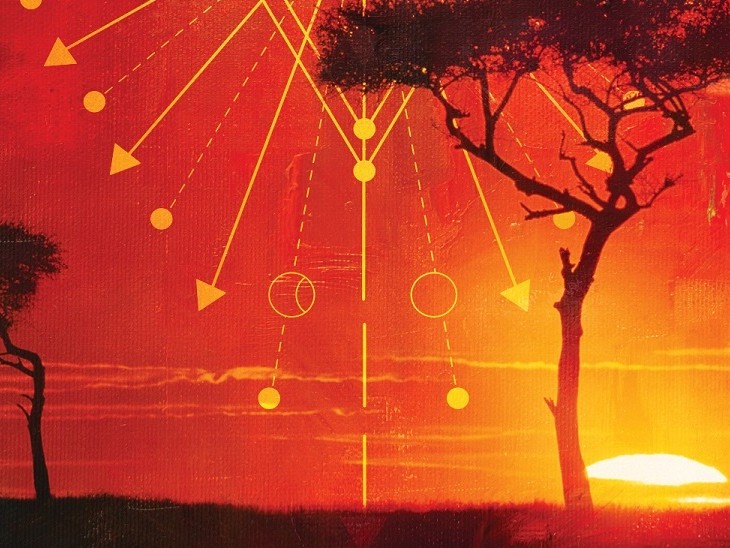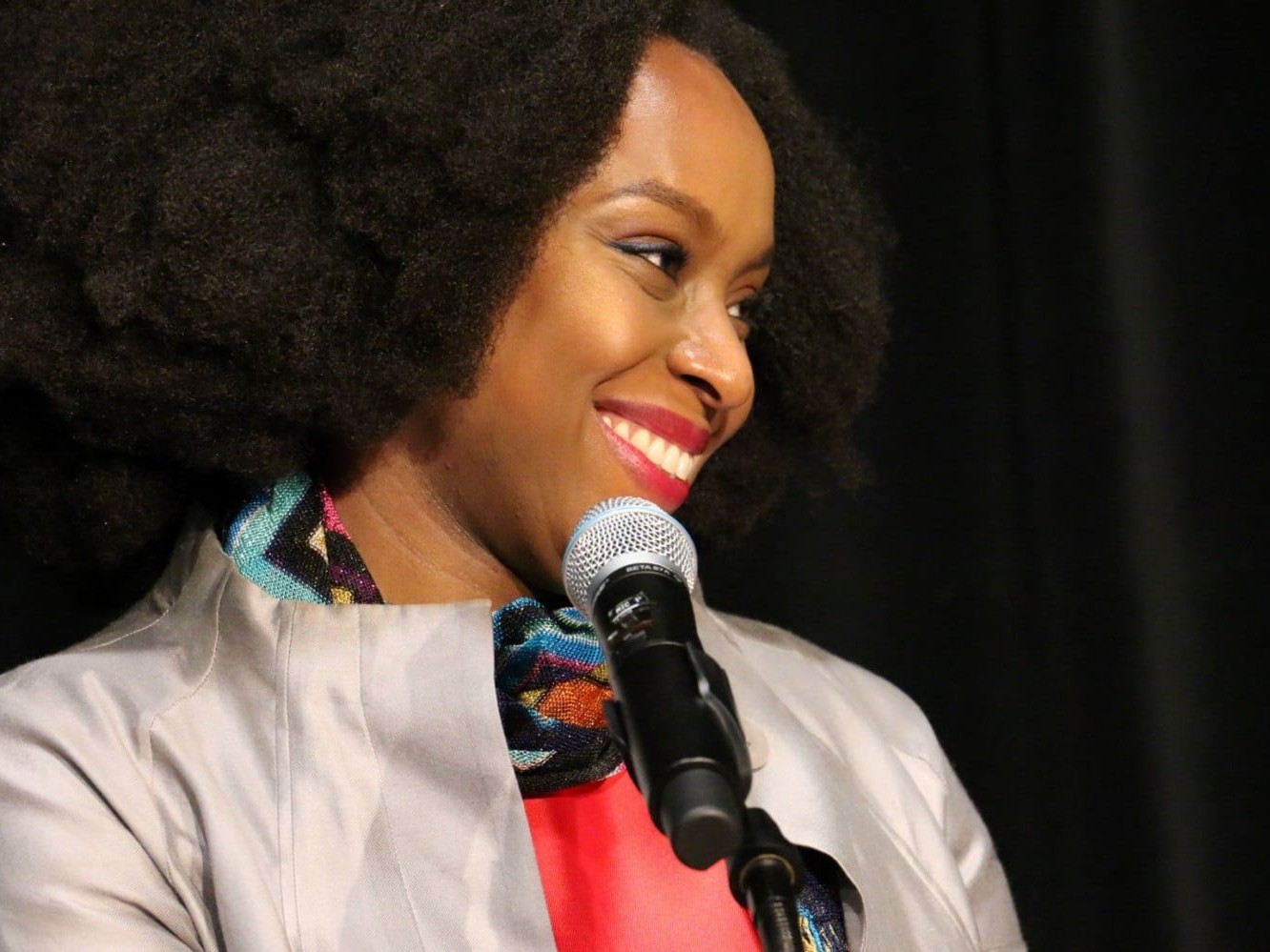Share this!
EXCLUSIVE INTERVIEW: C.T. Rwizi's Scarlet Odyssey
The story of Africa is ever-evolving, and with it, African stories also evolve and change. With those changes, we get the chance to discover new stories that simultaneously challenge and pay tribute to the traditions of the past. Usually, the stories come in the form of art, beit dance, music, visual, or written word. We’ve recently discovered a new story. Join us as we get to take an exclusive look inside C.T. Rwizi’s Scarlet Odyssey.
RELATED: C.T. Rwizi Creates Diverse African Fantasyscape in Scarlet Odyssey
In Rwizi’s debut, epic novel, magic is women’s work; war is men’s. Young Salo is on a course to follow traditions and become a man. But what happens when he finds out he has more of a gift for magic? When his village is attacked? He must accept his destiny. Along with a band of outcasts, Salo must work together to embrace their differences and save their home.
We had the opportunity to explore Scarlet Odyssey with author C.T. Rwizi, discussing the authentic influences behind the words and world of Scarlet Odyssey.
DEMAND AFRICA: What cultures/regions specifically influenced the settings and characters for SCARLET ODYSSEY?
C.T. RWIZI: I wanted to give my book a distinctly African feel, as seen through the eyes of an African, so I took inspiration from cultures I was familiar with for many of the world building elements in SCARLET ODYSSEY.
The use of clan totems, for example, is a concept I borrowed from the Shona people, but I understand that many other cultures in south and east Africa believe in ancestral totems. The drystone architecture of my main character’s society was also inspired by the Shona, in particular, the ruins of Great Zimbabwe, which I’ve been fortunate to visit in person on more than one occasion. Other regions seen in the book feature the beehive straw huts you might find in rural Eswatini (formerly Swaziland). Also from Eswatini: the bullfighting ritual mentioned at the very beginning of the book, which was inspired by a similar ritual performed by the young men of the royal regiment at the king’s kraal, wherein they literally punch a bull to death with their fists.
For clothing I borrowed conventions from the Basotho, the Shona, the Ndebele and the Xhosa peoples, as well as the kikois and kitenge of east Africa and the dashikis of west Africa.
The magical creatures that appear in the book were also, for the most part, inspired by African myths: the tikoloshe, grootslang and impundulu of South Africa and Eswatini, the ilomba of Zambia, the kongamato, dingonek, abada and kerit of central and east Africa.
That said, I think it’s important for me to mention that the cultures depicted in SCARLET ODYSSEY are entirely fictional and are not meant to be a one-to-one representation of any real African cultures.
* * *
DEMAND AFRICA: What role does gender play in this narrative?
C.T. RWIZI: SCARLET ODYSSEY touches on the toxicity inherent in rigid gender norms and the challenges those who fail to conform to such norms must face on a daily basis.
Salo, my main character, lives in a society in which books and magic—the things he loves—are considered womanly pursuits, while the art of war—which he absolutely hates—is seen as the ultimate expression of manhood. The fact that he’s the first-born son of a warrior-chief means that the burden of expectations on him is even heavier than usual, so his failure to live up to these expectations means he must face daily scorn and ridicule from his entire clan, even from his younger brothers. In SCARLET ODYSSEY we get to witness his struggle to become the man he wants to be despite the negative reactions of the people around him.
We also meet Ilapara, a young woman from the same society who is almost Salo’s polar opposite; while the women in her culture are expected to be academic, subtle and graceful, she is an impatient, spear-wielding warrior who is rarely afraid to speak her mind. Her failure to conform to the feminine ideals means that she must leave her homelands to find her own way where she will be free of such restrictions.
* * *
DEMAAND AFRICA: How have you used local languages and dialects to influence dialogue and narrative?
C.T. RWIZI: My family is scattered across southern Africa, from Eswatini to South Africa to Zimbabwe to Zambia, and they speak several different languages, so you could say I grew up with a rather cosmopolitan perspective of the region.
Also, being able to speak more than one Bantu language means it’s easy for me to catch onto many others, and I definitely employed them in the names I used for the people and places in SCARLET ODYSSEY. Most unique-sounding names you will encounter in the book are hybrids of two or more Bantu languages. My main character, for example, comes from a region of his tribelands called Khaya-Siningwe, whose totem is the leopard. “Khaya” means home in Zulu/Siswati/Ndebele, and “Ingwe” means leopard in just as many Bantu languages. Same thing with the neighboring region, Khaya-Sibere, whose totem is the hyena. “Bere” means hyena in Shona.
The way people address each other in the book also reflects how real African people interact. For example, a younger person will call an older woman “mother” or “grandmother” even if she’s unrelated or a complete stranger, as a sign of respect. For these I used hybrid words from Bantu languages to create new but familiar-sounding titles, like “aago” for grandmother, a hybrid of “ambuya” (Shona) and “gogo” (Ndebele/Zulu/Siswati).
* * *
DEMAND AFRICA: Why is this type of coming of age story important to you, specifically?
C.T. RWIZI: My aim was to write the kind of story I would have cherished reading as a young adult, the kind that simply didn’t exist until the recent past.
We all want to see ourselves represented in the media we consume, in the books we read and the movies we watch, to reimagine ourselves through the characters on the page or on the screen. But growing up as an avid reader of science fiction and fantasy, I was always disappointed by the lack of representation of black and specifically African people in the genre. Where were the noble African heroes and knights and princes and warriors and sorcerers? White kids had a seemingly infinite selection of books that portrayed them to choose from, but what about me and others like me?
Things are beginning to change, fortunately, as there are more black authors in the Sci-fi/Fantasy genre writing black and African characters. I’m very lucky to be able to say that I’m part of that change.
* * *
DEMAND AFRICA: What messages and insights can SCARLET ODYSSEY provide for African history? How is that relevant to today’s global society?
C.T. RWIZI: One of the ways I approached my world building was to imagine Africa if 1) it hadn’t suffered the blight of colonialism, and 2) if magic was real, powerful and dangerous—or for those of you who believe that magic is real, if it was manifest, powerful and dangerous.
The continent depicted in SCARLET ODYSSEY has never been invaded. Like pre-colonial Africa, the borders of its tribes are fluid and allow for free movement. Its lands have never been stripped of resources and arbitrarily divided by colonialists like the pieces of a cake. Its people have never been subjected to cultural imperialism or ideas of racial inferiority. They have not been evangelized or shipped to distant lands to serve as slave labor.
Basically, this continent evolved without much outside influence, and despite not achieving the same technological prowess achieved in some places across the seas, it has become powerful enough to be feared and respected on the world stage.
My goal was not to build a rosy, idealized and perhaps unrealistic vision of such a place. Indeed, the existence of magic makes this continent—and the world of SCARLET ODYSSEY at large—fraught with danger. Its people also face the pestilences of tribalism and constant warfare, burdens that many Africans must contend with in the real world. This is no utopia.
What I wanted to do was to imagine characters who were completely unshackled from the history of oppression that Africans and the greater African diaspora must live with every day. Characters free of a racial paradigm that questions their beauty, intelligence, heritage and value to society because of the darkness of their skin. Characters empowered to reach for the best—or worst—versions of themselves without the forces of casual and institutionalized racism to work against.
I then wanted to use these characters to demonstrate the complexity of African society, which is often presented as a monolith. The patchwork of tribes depicted, each with its own customs and norms, reflects the real diversity and color that exists in Africa, and that has always existed. Even within the same tribes or clans, African people can be heroes and villains, they can be sexy and beautiful and they can be ugly and malevolent, they can be brave and they can be cowardly. I wanted to celebrate Africa and all the colors of its spectrum, to muse on what it might have become, perhaps what is can still become, all without glossing over the real problems that still need to be addressed, such as xenophobia, sexism and tribal violence.
In sum, my hope is that readers come away with a deeper appreciation of the diversity of Africa and the complexity of its people.
* * *
DEMAND AFRICA: What’s the future of SCARLET ODYSSEY? Then for you as an author?
C.T. RWIZI: The story of SCARLET ODYSSEY continues in REQUIEM MOON, which comes out in the spring of 2021—or in the autumn of 2021 for those of us in the southern hemisphere. So far, I have a two-book contract, but I’m optimistic I’ll be able to add two more books to the saga. After that? I have many other epic stories bouncing inside my head just waiting to come out, so you’ll definitely be hearing more from me.
ABOUT THE BOOK
In a lush and magical world inspired by the many cultures and myths of sub-Saharan Africa, there’s a young man who, failing to conform to his society’s expectations, is forced to journey thousands of miles away from home to redeem himself and save his people. This is the premise of SCARLET ODYSSEY, an epic fantasy, a masterful debut and series launch by C. T. Rwizi, a young Black African writer based in South Africa. 47North will publish the novel on July 1, 2020.
Eighteen-year-old Salo, the son of a respected warrior chief, dreams of becoming a mystic, even though his tribe considers books and magic unmanly and expects him to embrace his father’s legacy. But after a diabolical enchantress attacks his village, Salo publicly confesses that he has created a mystical device that will awaken his latent magical powers, and he asks permission from his Queen, eager to prove that he can help protect his village in his own way. The Queen agrees to allow his awakening ceremony but commands him to travel across the lands north to the Jungle City, the political heart of the continent, in order to gather news of future threats.
On the way to the city, he joins forces with an unlikely band of misfits—a shunned female warrior, a mysterious nomad, and a deadly assassin—and their friendships grow as they learn to work together, despite their cultural differences. And their lives depend on their alliance, as they’re being hunted by the same enchantress who attacked Salo’s village. As the evil witch’s own dark history is revealed, it turns out that she may hold the key to Salo’s awakening—and his redemption.
With its innovative blend of fantasy with technology and science fiction, SCARLET ODYSSEY is a wholly original story that’s grand in scope, with four points of view from characters of diverse backgrounds, traversing across a continent fragmented into many different tribes and clans, each with their own language. Yet the novel is also intimate with its powerful emotional core, as it addresses head on the struggles of a young man coming of age and harnessing his own power in a society that doesn’t honor his choices.
About C.T. Rwizi
C. T. Rwizi was born in Zimbabwe, grew up in Swaziland, finished high school in Costa Rica and got a BA in government at Dartmouth College in the United States. He currently lives in South Africa with his family, and enjoys playing video games, taking long runs and spending way too much time lurking on Reddit. He is a self- professed lover of synthwave. Scarlet Odyssey is his debut novel.








